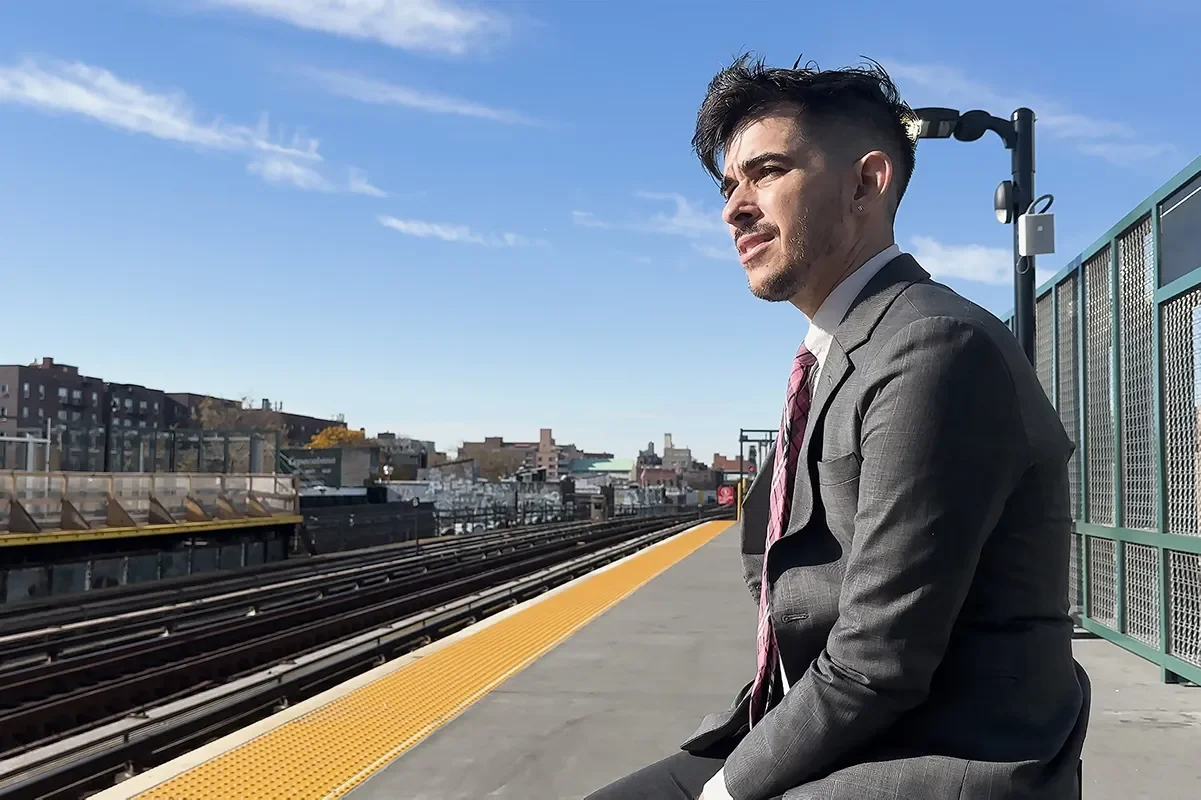Interview with Sam Feder, Director of ‘Heightened Scrutiny’
In December of 2024, ACLU lawyer Chase Strangio argued against a Tennessee law banning gender affirming care for minors in the Supreme Court. In the new documentary Heightened Scrutiny, non-binary director Sam Feder follows Strangio as he assembles his legal case. Feder explores how we got to the current explosion in attacks on transgender youth, closely examining journalism's influence on legislation. Throughout the film, transgender activists and allies are highlighted, giving a strong undercurrent of hope and action to the transphobia depicted. I had the pleasure of interviewing Feder about the impetus for making the film and audience reception.
Feder’s preceding project was the documentary Disclosure, which centered around their “fear that the increase of trans visibility would lead to an increase of social and legislative violence.” Feder’s fear would be realized; at the time of Disclosure’s release, no state had a ban on gender affirming care. In the next year, 22 states introduced laws banning medical care for transgender youth; “within a year of the film coming out, we were seeing that increase, both legislatively and socially.”
Heightened Scrutiny explores how transphobic narratives and misinformation led to these legislative changes. People who do not understand the fundamentals of gender affirming care are given a microphone with which to express their concerns in both the legal and journalistic spheres. Multiple editorials in the generally center-left-leaning New York Times urge caution regarding gender affirming care and highlight detransitioners’ stories; these editorials create a false narrative of mass detransitioning and high rates of regret for gender affirming care. According to a 2021 study, the majority of detransitioning is done due to social pressures, with only a small percentage of transgender people detransitioning permanently explicitly due to internal changes in gender. In terms of gender affirming surgeries, the regret rate is less than one percent. These studies are generally ignored by prestige news outlets in favor of stoking transphobia.
Biased journalism editorials have an immediate real-world impact. As Feder says, “the rhetoric that had once been relegated to the right wing was now being used in mainstream media, and that those articles were literally being cited in legal briefs that were passing these anti trans laws.” Whereas legal articles often cite trusted medical articles in their decisions, biased and conservative articles are cited in briefings regarding transgender healthcare. A journalist featured in Heightened Scrutiny describes the intensive fact-checking process on an editorial written for the New York Times; those standards are not held for editorials focusing on transgender children.
Feder described an experience on a queer-friendly set where someone who did not know about puberty blockers was strongly cautioning against gender affirming care for minors: “I was just shocked that she felt at liberty, not only on this set, a queer, trans set television show, but to talk to me about it, and not even like engaging with questions, but lecturing me.” These anti-transgender legal decisions and conservative bend in news publications has affirmed biased convictions against transgender healthcare and fostered a culture of ignorance on a personal and public scale.
In June of this year, the Supreme Court upheld Tennessee’s legislation banning gender affirming care in a devastating setback for transgender rights. Despite these losses, Heightened Scrutiny provides hope by demonstrating a multitude of transgender activists and journalists fighting for transgender youth everywhere. This presentation of activism gives the film a strong undercurrent of hope. Feder noticed this audience reaction, remarking, “They felt hope because they felt the renewed agency to be angry in a positive way: the renewed agency to protect each other.”
Feder has felt particularly inspired that his film is being used as an interpersonal and legal tool; “whether it’s creating a space where people can talk about the issues after they watch the film, or there's some organizers on the state level that are showing it to legislators to help inform them as they discuss the bills coming up. Other organizers are using the film to travel around their state and collect signatures on ballots. So they had these conversations after the film, and then they asked people to sign these ballots.” These real-world impacts inspire Feder as a director; “I create films as a trans person, hoping that they can be used as a tool to help more trans people.”
The audience finds a great deal of inspiration through Mila, a young transgender girl who works as an activist. Feder introduces her in a school board meeting discussing bathroom use, where disparaging adults ignore her until she breaks down. Heightened Security glimpses into her family life and love for her cat, and she reveals how depressed she would be without puberty blockers or hormone replacement therapy. Through Mila, the stakes of the issue are made evident. But Mila also demonstrates the power of the youth voice.
Feder has a strong understanding of the scope of their projects and importance of documentary filmmaking. In their films, their goal is “exposing the silences of institutions, you know, whether it's Hollywood or the, you know, mainstream media, it's always going to be about speaking truth to power.” Feder emphasizes the personal stake a documentarian must have in speaking to a social issue: “we're watching with the people, we're not looking at the people.” In this empathetic eye and in these moments of connection is where we find the strength to fight for transgender rights.


